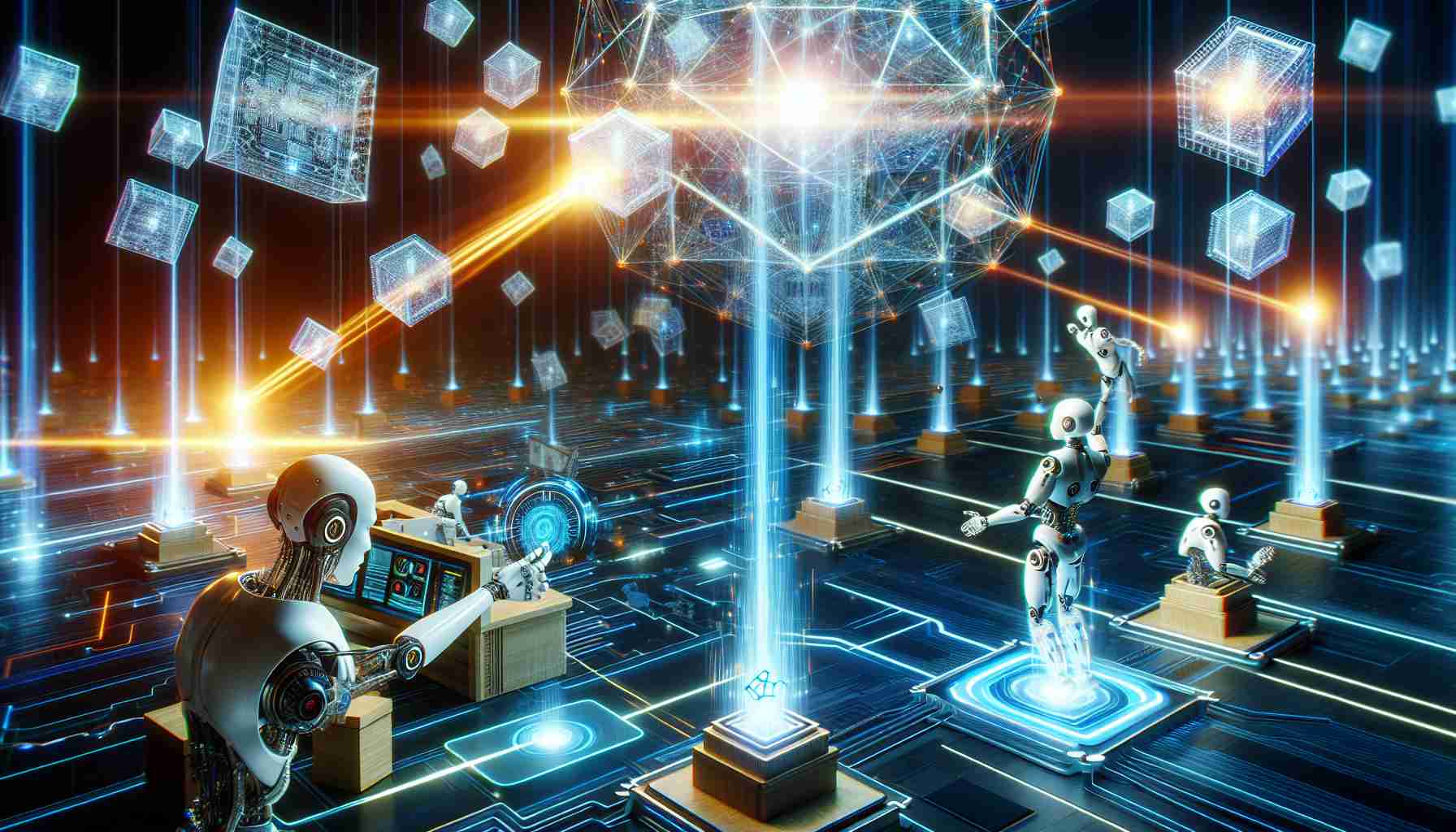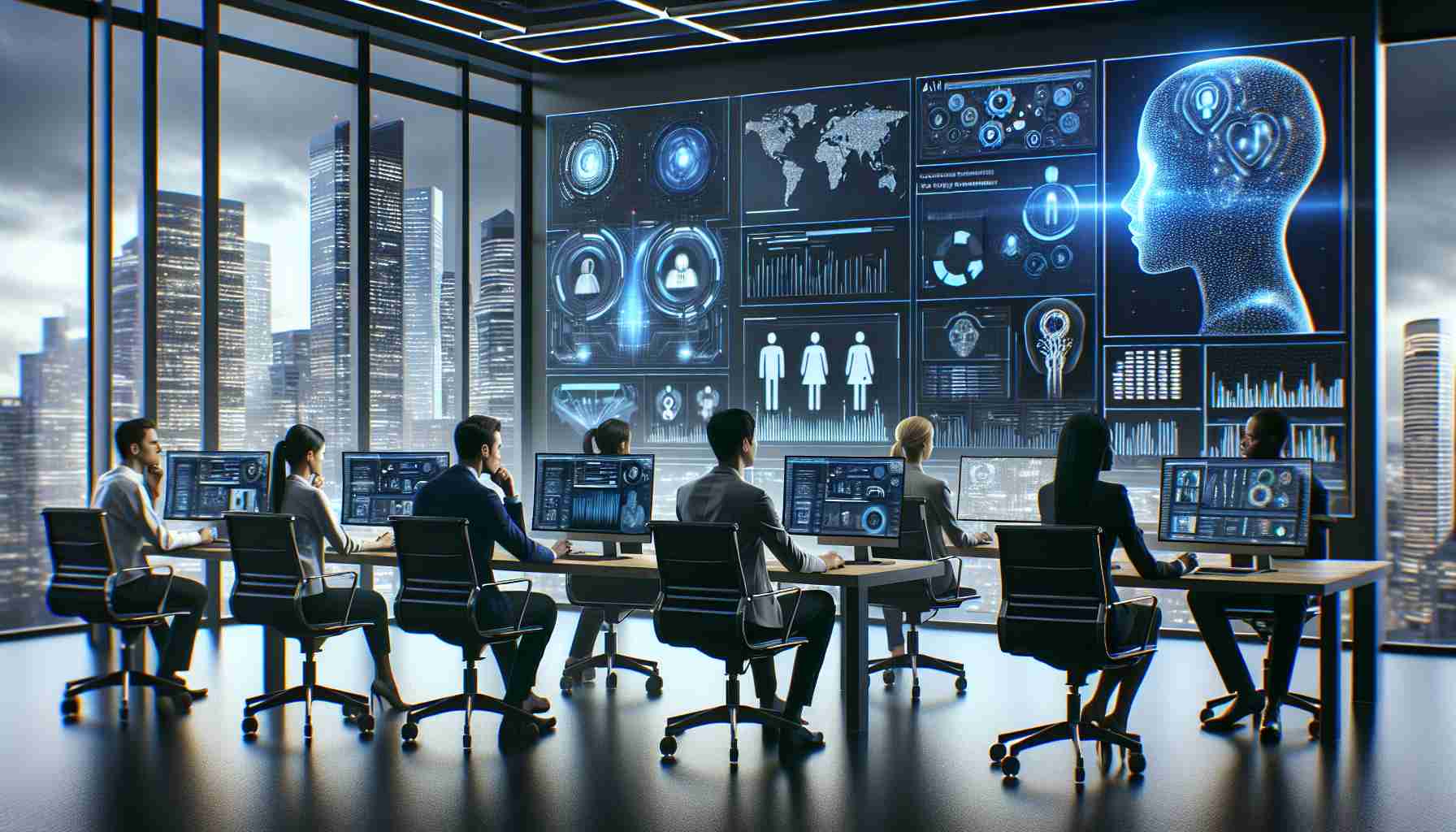Are we on the brink of a technological breakthrough? Metis, a prominent Layer 2 blockchain, is set to redefine the landscape with its new initiative, ReGenesis.
In a bold move to revolutionize artificial intelligence (AI), Metis is rolling out ReGenesis, a comprehensive project aimed at integrating blockchain technology with AI development. This initiative strives to craft an infrastructure tailored for AI, while ensuring that the growth of AI remains ethical and decentralized.
As the sector grapples with various hurdles—like centralization and inconsistent data—experts argue that effective solutions are necessary for AI to reach its full capabilities. By utilizing blockchain’s inherent strengths, ReGenesis intends to build a transparent and fair groundwork for future AI applications.
Key Issues Addressed
In its mission, Metis tackles critical challenges hindering AI’s progress:
– Performance Needs: AI demands swift processing capabilities that current blockchain systems often struggle to provide.
– Data Reliability: To ensure that AI outputs remain credible, decentralized storage and rigorous validation frameworks are vital.
– Integration of Compute and Storage: This includes the establishment of comprehensive markets to manage massive datasets, improving AI processing efficiency.
Within ReGenesis lies LazAI, a platform promoting verified AI assets. This initiative paves the way for ethical AI development through innovative governance models, ensuring equitable distribution of AI-generated benefits.
By advocating for decentralized AI systems, Metis propels the industry toward an inclusive future, encouraging diverse contributions while preserving privacy and ethical standards. With more revelations to come, Metis aims to lead the charge in crafting an advanced, decentralized AI landscape.
The Future of AI and Blockchain: A New Paradigm
The intersection of blockchain technology and artificial intelligence (AI) presents profound implications for society and the global economy. As initiatives like Metis’ ReGenesis emerge, they highlight a shift towards a more integrated technological ecosystem that values decentralization and ethics. This shift could redefine how industries operate, making transparency and fairness central tenets in the development of AI capabilities.
One of the most significant societal impacts of this integration is the potential for greater democratization of AI tools. Currently, AI technologies are often concentrated in the hands of a few powerful corporations. By decentralizing AI through platforms like LazAI, the barriers to entry could be lowered, fostering innovation and inclusion, particularly in underrepresented communities.
Furthermore, the environmental implications of combining AI with blockchain cannot be overlooked. While traditional blockchain operations are energy-intensive, developing more efficient processing protocols can lead to a reduced carbon footprint for AI applications. As the technology evolves, we could see innovative solutions that not only enhance AI efficiency but also address the pressing challenges of climate change.
Looking ahead, the integration of AI and blockchain foreshadows a future where these technologies co-evolve, influencing everything from job markets to global supply chains. As ethical frameworks solidify, and decentralization becomes a norm rather than an exception, the global economy may gain a new layer of dynamism and resilience, better equipped to tackle the multifaceted challenges of the modern world.
Revolutionizing AI: How Metis’s ReGenesis is Pioneering a New Era in Blockchain Technology
## Metis and the Vision of ReGenesis
Metis, a significant player in the Layer 2 blockchain space, is currently embarking on a transformative journey with its new initiative, ReGenesis. This ambitious project aims to integrate artificial intelligence (AI) development with blockchain technology, creating a robust infrastructure that prioritizes ethical and decentralized growth.
The technological landscape is at a pivotal point, facing challenges like centralization and inconsistent data that hinder the full potential of AI. Recognizing these hurdles, ReGenesis promises to leverage blockchain’s unique properties to establish a transparent and equitable foundation for future AI applications.
## Key Innovations of ReGenesis
Performance Optimization
AI Processing Needs: One of the main issues the project addresses is the performance gap between current blockchain capabilities and the swift processing requirements of advanced AI. ReGenesis seeks to enhance transaction speeds and data handling, ensuring AI models can operate seamlessly in a decentralized environment.
Data Reliability and Decentralization
Trustworthy Data: A reliable AI system relies heavily on high-quality data inputs. ReGenesis is focused on creating decentralized storage solutions that provide rigorous data validation processes, enhancing the credibility of AI outputs. This approach minimizes risks associated with data manipulation or loss.
Integration of Compute and Storage
Market Establishment: ReGenesis plans to develop comprehensive markets for large datasets that will streamline data management for AI processing. By improving access to data and computational resources, the initiative aims to facilitate more efficient model training and execution.
## Features and Components of ReGenesis
Among the central components of ReGenesis is LazAI, a pioneering platform aimed at promoting verified AI assets. LazAI seeks to implement innovative governance models that not only enhance the ethical development of AI but also ensure that the benefits generated from AI are distributed fairly among stakeholders.
Ethical Governance Models
The governance structure proposed within LazAI emphasizes transparency and community participation. This approach is crucial for maintaining ethical standards and ensuring that AI advancements align with broader societal values.
## Pros and Cons of Metis’s ReGenesis
Pros:
– Improved processing speeds tailored for AI applications.
– Decentralized and trustworthy data storage promoting high-quality AI outputs.
– Inclusive governance models guaranteeing fair distribution of AI-derived benefits.
Cons:
– Complexity in implementation, which might pose integration challenges.
– Dependence on community engagement for governance can lead to disputes.
– Risk of regulatory scrutiny as AI and blockchain systems converge.
## Use Cases for ReGenesis
1. Healthcare: Utilizing AI for diagnostics while ensuring patient data is stored securely and privately.
2. Finance: Enhanced real-time data processing for fraud detection in decentralized finance (DeFi) applications.
3. Supply Chain Management: AI-driven insights into logistics, ensuring data integrity and reliability across the network.
## Market Trends and Insights
The fusion of AI and blockchain is becoming increasingly significant as industries seek smarter and more trustworthy systems. With ReGenesis, Metis positions itself at the forefront of this trend, potentially influencing how businesses implement and govern AI technologies.
## Pricing and Accessibility
While specific pricing details for accessing ReGenesis’s tools and technologies have yet to be disclosed, Metis’s commitment to decentralization suggests a model that aims to remain accessible to a broad range of users and developers.
## Predictions for the Future
As Metis continues to develop ReGenesis, we can anticipate significant advancements in how AI systems are created, deployed, and governed. The emphasis on ethical practices and decentralization is likely to set new standards in the tech industry, fostering innovation while addressing critical issues surrounding AI applications.
For more information on the Metis project and its ongoing developments, visit Metis Official Website.













